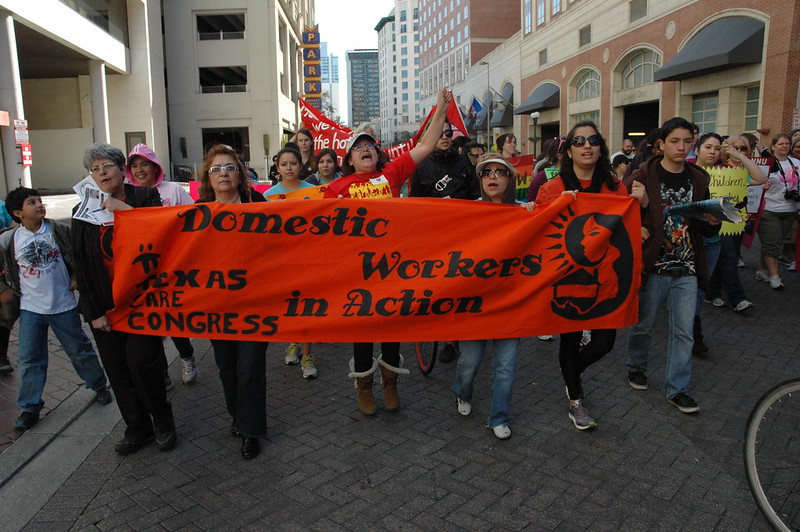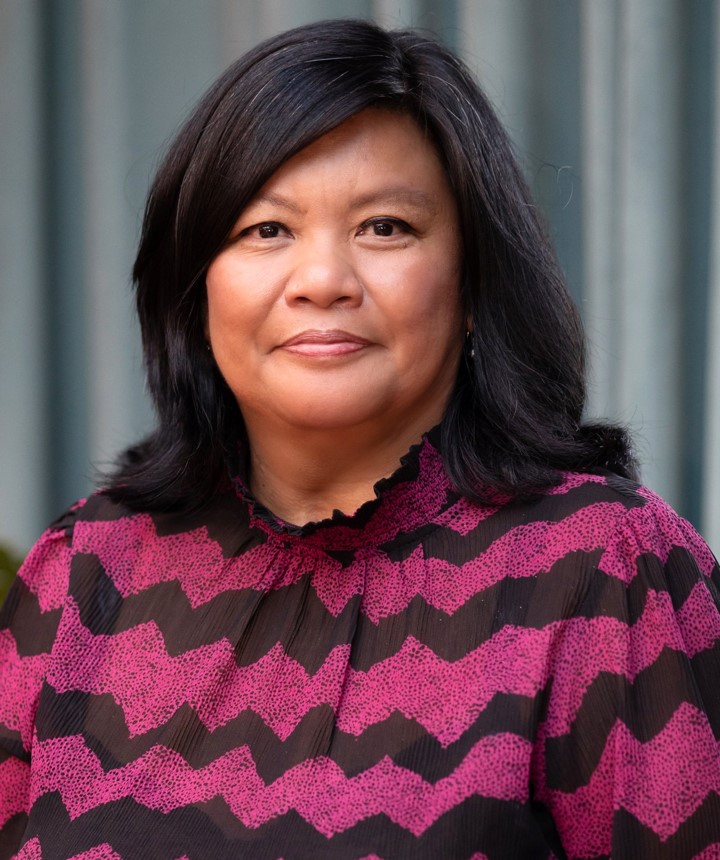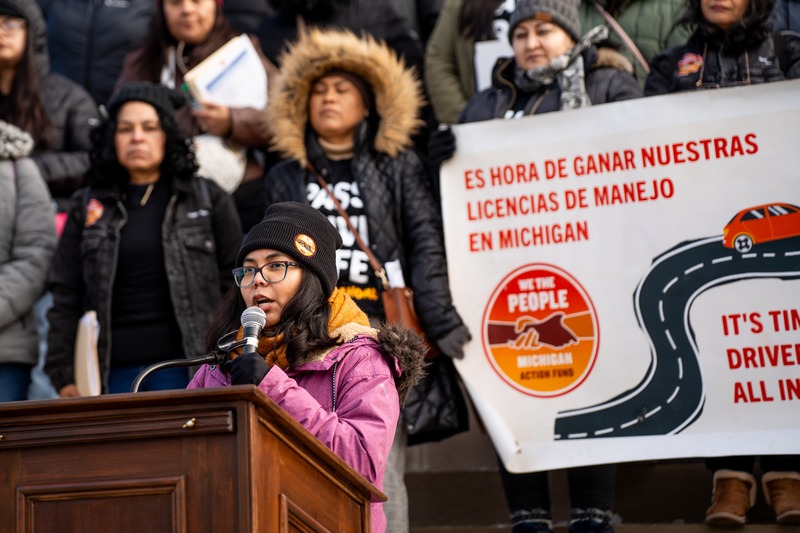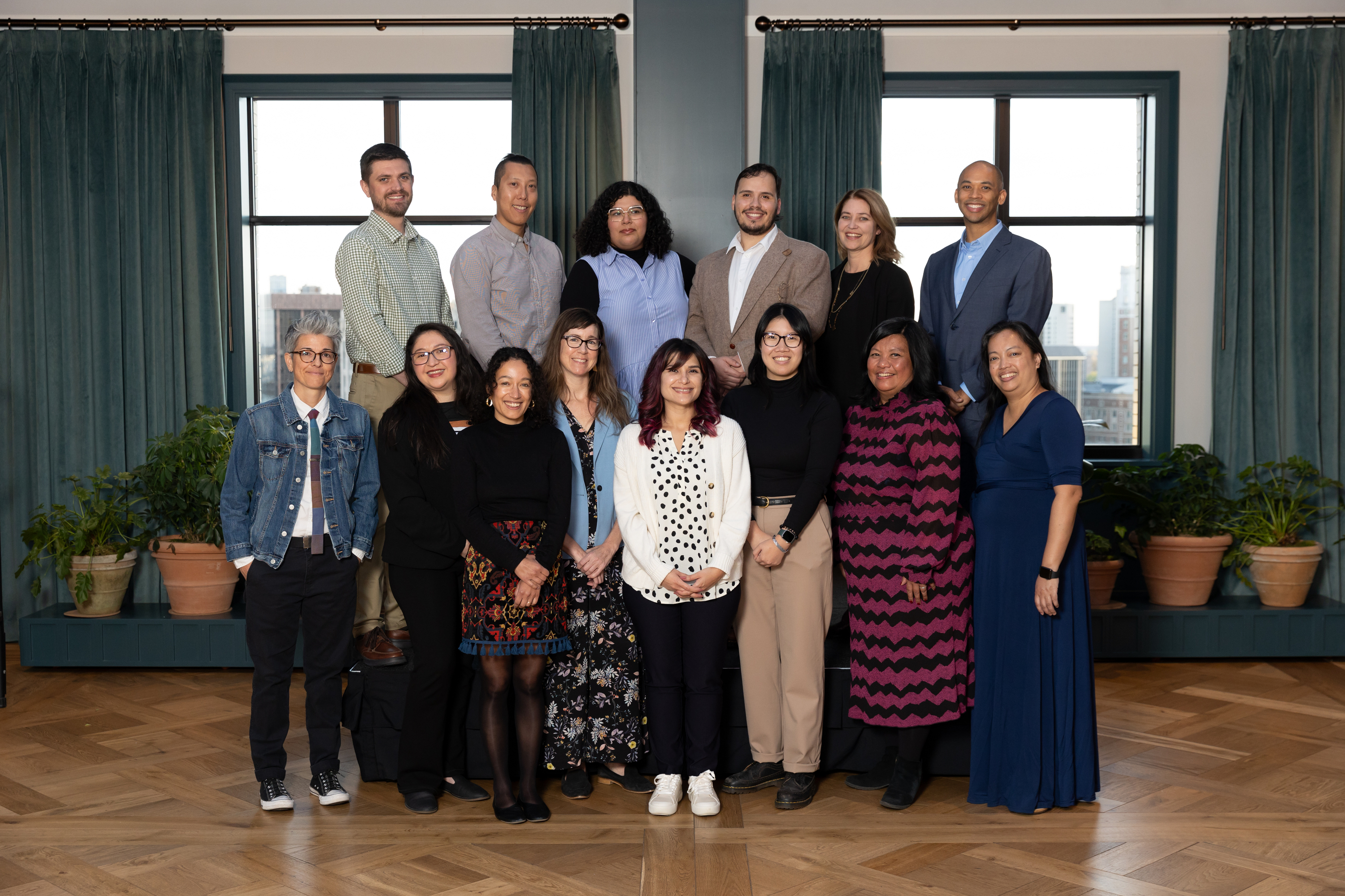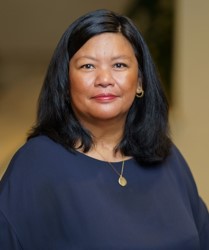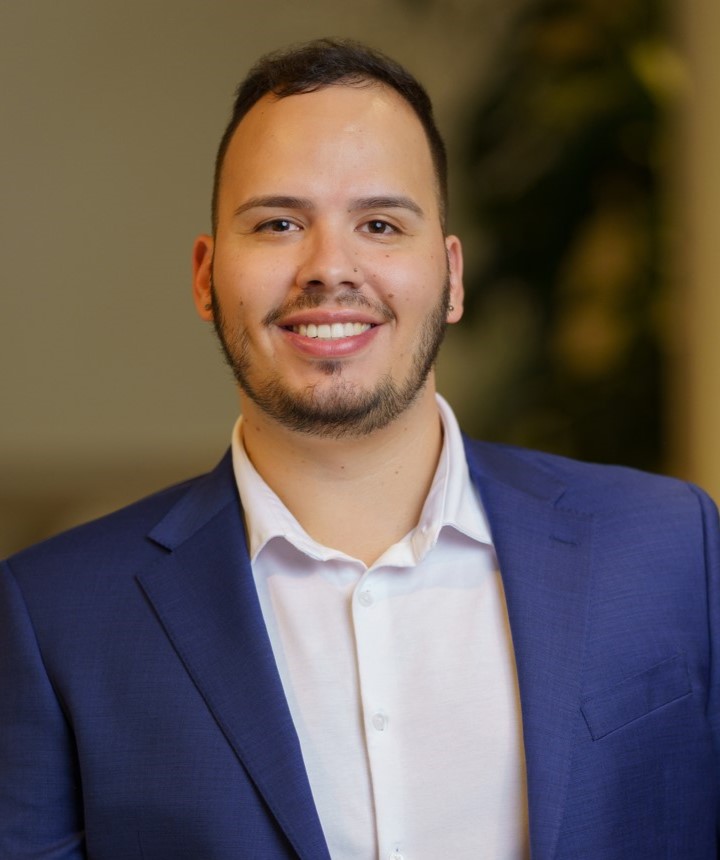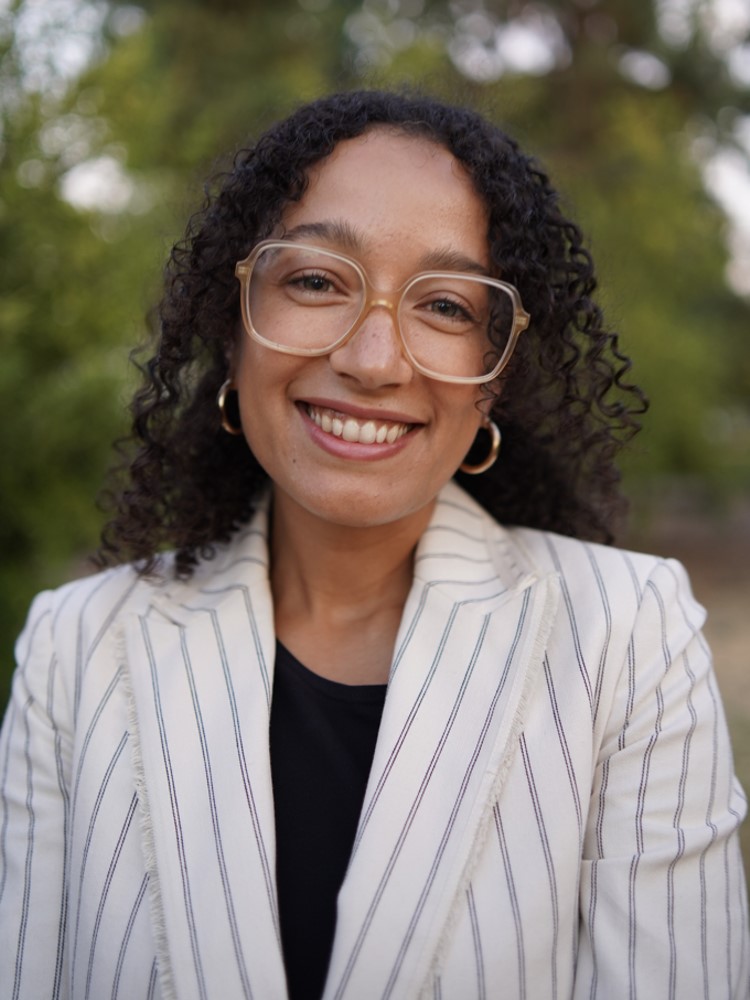GCIR joins our philanthropic partners in condemning the administration’s stated intent to undermine the organizations that do the essential work of protecting and caring for our communities. This impending attack on nonprofits is an obvious extension of the assault we are seeing on law firms, universities, diversity initiatives, and others - a clear attempt to dismantle civil society institution by institution.
News
Primary tabs
GCIR’s recent webinar "Building Worker Power for Migrant Women" did something important beyond providing valuable content and timely insights: it gave us hope. The program,” showcased the miracle-making work being done in Arkansas, California, New Jersey, and New York to safeguard the rights of migrant women workers in the agriculture and poultry industries, and in the domestic work sector. In last month’s webinar, which was moderated by Carmen Randolph at Women’s Foundation of the South, we heard from local organizers at the California Rural Legal Assistance, Inc.’s (CRLA) LGBTQ+ Program; Damayan, a group that serves and empowers low-wage Filipino workers living and working in New York City and New Jersey; and Venceremos, a worker-based organization in Arkansas whose mission is to ensure the human rights of poultry workers.
In her quarterly message, GCIR President Marissa Tirona calls on philanthropy to step up in this critical moment and leverage its power in service of communities under attack by the current administration, including immigrants and refugees. She also shares how GCIR is stepping up in this moment to expand our state and local strategies, advance pro-immigrant policies, amplify power-building efforts and expand protections for migrants in the long-term.
Welcome to Amplify, where we feature interviews with immigrant justice field leaders to showcase their work and provide a platform for their perspectives. In this episode of our Amplify podcast, GCIR President Marissa Tirona speaks with Maria Ibarra-Frayre, Co-Director of We the People Michigan. The organization is committed to building power and strengthening civic engagement for communities across Michigan through disciplined, rigorous, long-term community organizing.
2024 was a challenging year in the fight for immigrant and refugee justice. GCIR, movement leaders, and our partners in philanthropy have been preparing for an incoming presidential administration that poses an unprecedented threat to our immigrant communities. In the face of these challenges, GCIR doubled-down this year on developing programming, resources, and partnerships that reflect our dedication to moving money and power to migrant communities and resourcing a robust migrant justice infrastructure.
In her first President's Message of 2024, GCIR President Marissa Tirona shares how philanthropy can support pro-immigrant work in a challenging political and cultural context.
Cairo Mendes, GCIR's Director of State & Local Programs, reflects on the listening tour that has informed our new state & local strategy.
In this edition, GCIR President Marissa Tirona speaks with Magaly Urdiales, Co-executive Director of the Western North Carolina Workers' Center. Read on as Magaly shares her insights on organizing workers in her region, the innovative strategies they use to identify campaign issues and effect the changes workers want to see, and the important role philanthropy can play in building immigrant worker power and leadership in rural areas.
What do we hope to accomplish? What will success look like? What will it take to get there? These are some of the questions I grapple with as GCIR’s Programs Learning Manager. My position is new, reflecting the organization’s commitment to proactive learning throughout our work. In a nutshell, I aim to support the team in building evaluative capacity, including through the design (and constant iteration) of ways of working that make it easy for people to engage meaningfully in learning processes.
We’re here with issue #4 of the California Dignity for Families Fund (CDFF) Newsletter Series: Learning for Immigrant Justice. This month we’ll be spotlighting how to support BIPOC leadership of nonprofit organizations.
